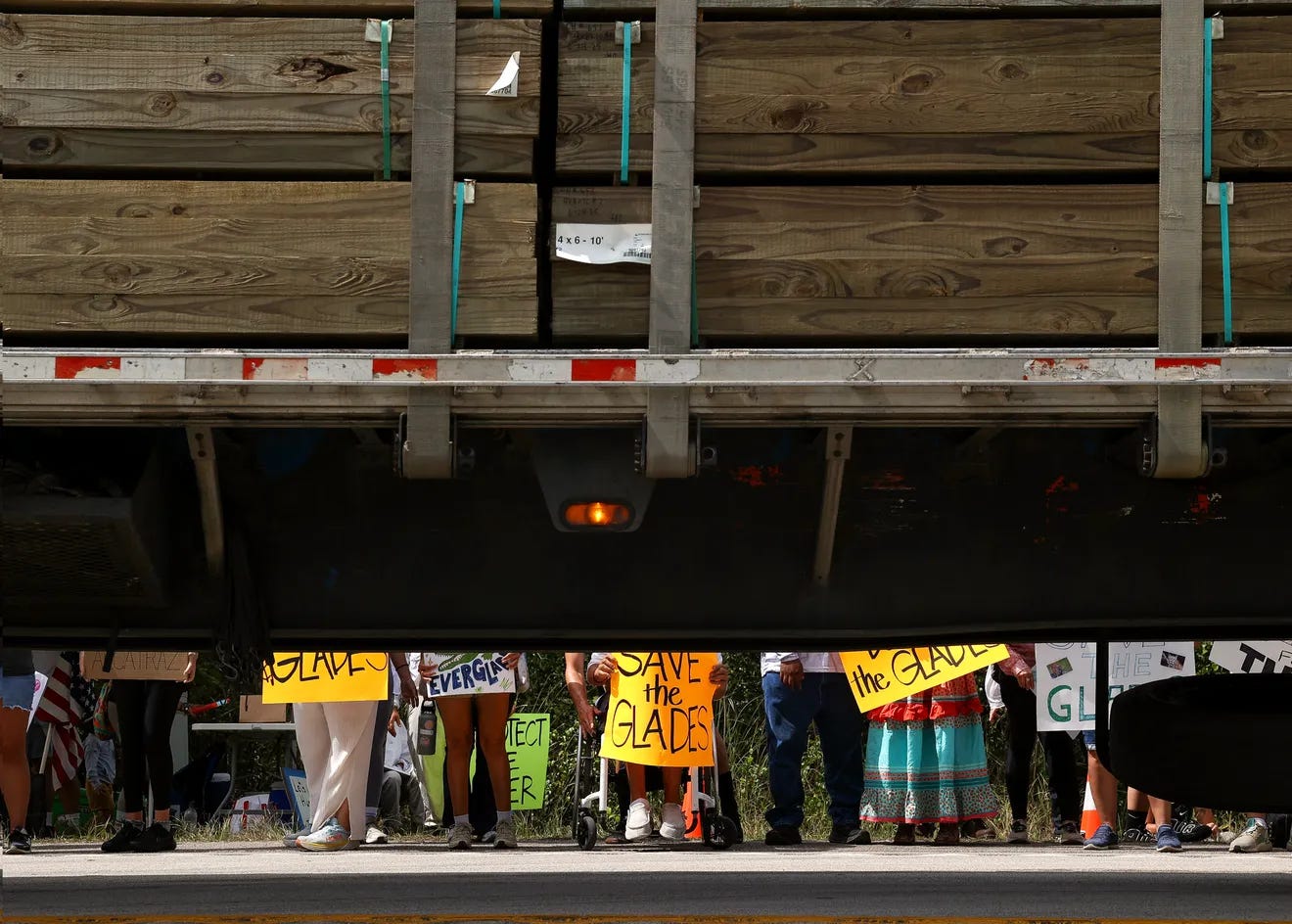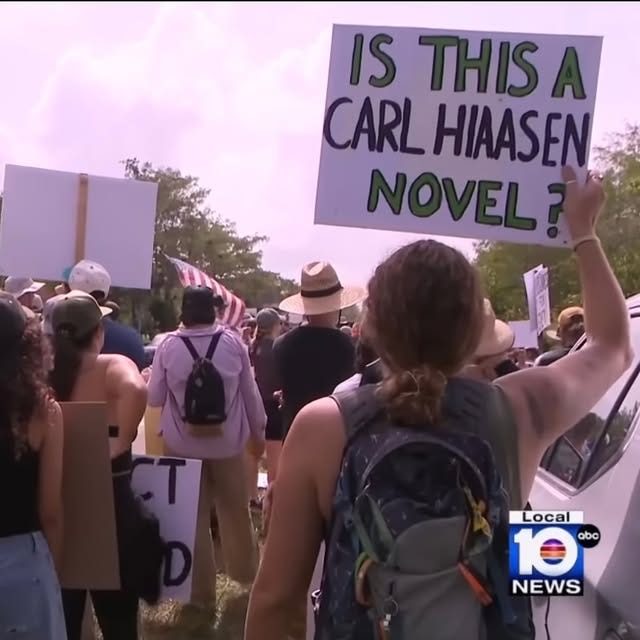Big Cypress Pounds the Pavement
DeSantis wants to build "Alligator Alcatraz" in Miccosukee and Seminole territory. A federal lawsuit, on-site demonstrations, and wetland realities signal full stop on construction.
If you’re new to Route 24, welcome! A special thank you to everyone who stopped by our session at Generations United 2025 and to our new wave of subscribers! It was fun to see everyone’s reactions and have insightful conversations about what we’re building. Swing by Friday for the full recap.
The Route 24 Roadmap
I’m on a mission to help restore public trust. This is where I look closer at moments of global and national significance to show how cycles of misinformation and disinformation disorient communities.
Probable Cause is an XR civic education gaming experience that puts you in the driver’s seat during a routine traffic stop. Route 24 is its companion newsletter that invites you to explore our creative process on the project as we build, deconstructing traffic stop data, policing trends, and their community impact to jumpstart public awareness and, in turn, mobilize narrative change.
Driver’s Ed parks in your inbox on Mondays to shift your gears on key policy debates and test drive people-powered solutions.
Here’s where you come in. Every follow, share, and subscription helps to keep this work going and reach the people the mainstream media often misses. For riders in a position to financially contribute, your dollars support the creative team with the critical resources needed to iterate, travel, and scale.
Start your engines…
In this issue: If you’ve ever read Carl Hiaasen, then the odds are good you know about “Skink” — the former Florida governor who left politics to reside in the Everglades and crusade against the state’s overdevelopment. He’s a trip.
When I first saw the headlines about “Alligator Alcatraz”, I envisioned a conversation where Skink explains to DeSantis how wetlands work. Aside from the ethical implications of detaining migrants with no criminal record and building on tribal, federally protected jurisdiction, there’s also the high probability that a migrant detention center built near Big Cypress National Preserve — an area that’s more than 96% wetlands — could, quite literally, sink.
The science is clear. Wetlands serve as nature’s protective barrier for flood mitigation— absorbing, filtering, and releasing storm water in a sponge-like, controlled flow. Without wetlands, infrastructure is directly impacted by storm surge.
It’s getting late here in L.A., so I’m including links to help bring you up-to-speed on the latest in the Alligator Alcatraz debate.
Thank you, as always, for joining me on this road!
Stay the course,
Sam
Sam Reetz, is a filmmaker, performer, and founder at Millennial Ethics, creating narrative solutions to complex issues.
Follow her work on Bluesky, Substack and Instagram.
Swamp Justice
Understanding The Alligator Alcatraz Debate: Treasure Coast’s Local Lens
The Environmental Protection Agency Fact Sheet: Why Are Wetlands Important







